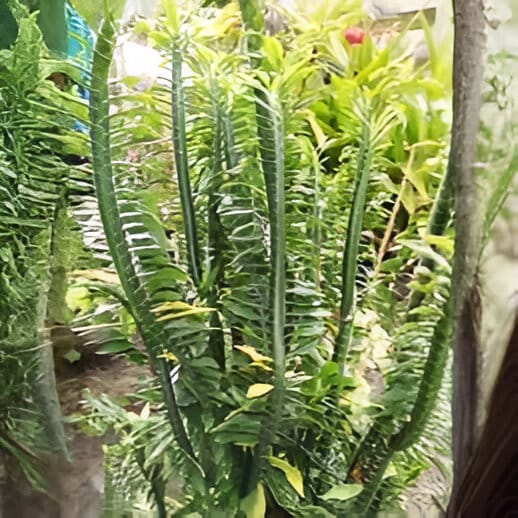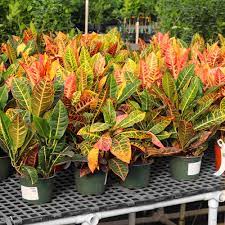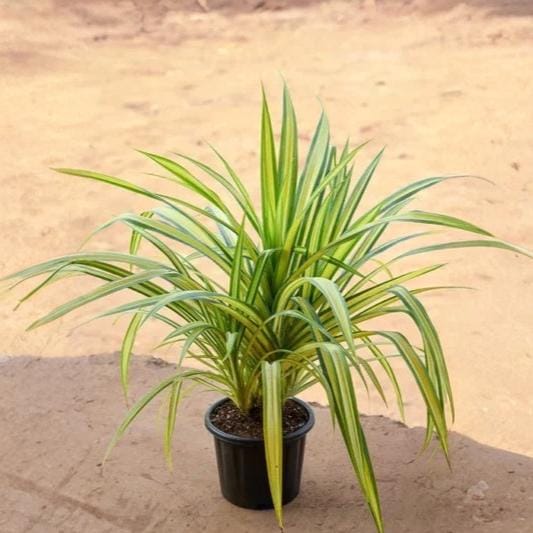

pentanus plant
₹199.00 Original price was: ₹199.00.₹149.00Current price is: ₹149.00.
Details:
The Pentas plant is a wonderful addition to any garden or container garden. With its beautiful, colorful flowers, it attracts pollinators like bees and butterflies, making it a great choice for gardeners interested in supporting local wildlife. It’s relatively easy to grow and care for, thriving in warm, sunny locations. Whether used as a border plant, ground cover, or in pots, Pentas adds vibrant color and beauty to any space.
Description
It seems like you’re referring to a plant called Pentanus, but there isn’t a well-known plant species by that exact name. It’s possible you may be referring to Pentas or Pentanus could be a typo or misheard name. I’ll provide a description of Pentas, which is a popular plant often confused with similar-sounding names.
If you were referring to a different plant, please clarify, and I’d be happy to provide more accurate information!
Pentas Plant (Pentas lanceolata)
Pentas is a genus of flowering plants native to tropical Africa and parts of Asia, widely known for its attractive star-shaped flowers and its ability to thrive in warm climates. The Pentas lanceolata, also called Egyptian Starcluster or Pentas, is the most commonly grown species. This plant is popular for landscaping and container gardening, thanks to its vibrant flowers and low maintenance.
Appearance:
- Leaves: Pentas has long, lance-shaped leaves that are green and glossy. The leaves are typically about 3–5 inches long and have a slightly textured surface.
- Flowers: The standout feature of the Pentas is its star-shaped flowers, which bloom in clusters. These flowers come in a variety of vibrant colors, including pink, red, white, purple, and lavender. The flowers are small but grow in dense clusters that form attractive blooms.
- Size: Pentas can grow to a height of about 18 to 36 inches (45 to 90 cm) tall, with a similar spread. When grown in pots, it may remain more compact. The plant has a bushy, rounded form and is often used as a flowering hedge or in containers.
Growing Conditions:
- Light: Pentas thrives in full sun but can tolerate partial shade. However, flowering may be reduced if it does not receive enough sunlight. It’s best to plant Pentas in a location that gets at least 6 hours of direct sunlight per day.
- Temperature: As a tropical plant, Pentas prefers warm temperatures, generally between 60°F to 85°F (15°C to 29°C). It is not frost-tolerant and should be brought indoors or protected if temperatures drop below 50°F (10°C).
- Soil: Pentas prefers well-draining soil with a slightly acidic to neutral pH. It can tolerate a variety of soils, as long as the drainage is adequate. It grows best in fertile soil enriched with organic matter.
- Humidity: Being native to tropical regions, Pentas enjoys moderate to high humidity. It can handle average indoor humidity levels, but it will grow better in areas with higher moisture in the air.
Care:
- Watering: Pentas like consistently moist soil, but they are sensitive to waterlogged roots. Water the plant regularly, allowing the soil to dry slightly between waterings. In winter or cooler months, reduce watering frequency.
- Fertilizing: Feed Pentas with a balanced, water-soluble fertilizer every 4-6 weeks during the growing season (spring and summer). This helps encourage healthy blooms and foliage. Avoid over-fertilizing, as this can harm the plant.
- Pruning: Regular pruning will encourage bushier growth and more flowers. Trim back any dead or leggy stems to promote new growth. If the plant becomes too tall or sprawling, pruning can help maintain a compact shape.
Pests and Problems:
- Pentas are relatively pest-resistant but may occasionally attract aphids, spider mites, and whiteflies, especially if stressed. Keeping the plant healthy through proper watering, sunlight, and air circulation can help prevent infestations.
- Overwatering and poor drainage can lead to root rot and fungal infections. Make sure the plant is in a pot with adequate drainage and the soil is well-draining.
Toxicity:
Pentas are non-toxic to pets and humans, making them a safe option for households with children



Reviews
Clear filtersThere are no reviews yet.